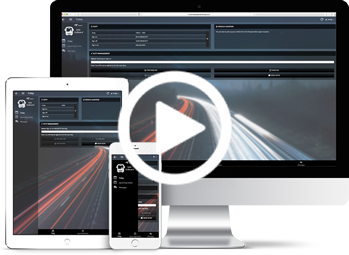Public transport data is valuable. So why not use it?
Since joining Trapeze I have been excited to visit a number of local authority transport teams around the country. Through these meetings and my prior industry experience, I have become aware that many authority staff struggle to access public transport data which could make their lives easier.
This interested me because in my previous roles at Strathclyde Partnership for Transport (SPT) and Nexus (Tyne and Wear Passenger Transport Executive), data was fast becoming central to everything we did, with KPI measurements informing future decisions and evaluating activities undertaken.
It is apparent that given the financial restrictions many local authorities are operating under, transport teams – especially those with tight budgets – are not able to take advantage of data that could help them.
Data-Driven Decisions
One of the areas where data can have the greatest impact is network planning, where in my experience ‘gut feel’ often rules the decision making process. This is perfectly understandable, since gut feel – or local expertise – was historically the best tool available. Indeed, this kind of expertise remains hugely valuable – but even better results can be achieved by aligning it with data which can either inform and validate the expertise, or challenge it when incorrect.
Using data not only informs better decisions; it can also be vital in terms of measuring the impact of investment, and ultimately winning applications for new funding.
The thing with data is that it can lead you down a rabbit hole. Questions result in more questions, which result in yet more questions. This in itself can be a valuable exercise as you don’t always know what you are going to find when you begin. So how do we identify the ‘right’ data to enable us to track the ‘right’ KPIs?
Benchmark KPIs
Every organisation has specific performance it needs to track, but is it possible to identify some industry-wide Key Performance Indicators (KPIs) that may be relevant to all authorities? I think it would be hugely beneficial to publish more industry standard benchmarks so that authorities can see how they are performing against their peers and address any issues affecting their performance. Forums exist where authorities can share their experiences and knowledge, and advance the industry as a whole.
Below are some KPIs that I believe are helpful for most authorities to track.
- Trip speed analysis
Authorities should not only compare trip speeds with other regions; they should also compare weekday peak speeds with off peak speeds, as this will reveal the impact of congestion. Where congestion is causing issues, authorities can seek to mitigate it – perhaps by considering the interventions outlined in this article. These measures are most beneficial when used for baselining and target setting and ongoing measurement of the success of interventions. The measurement can be global, or can be focused on strategic bus corridors.
- Trip variability/reliability
Average trip times is a good measure, but we also need to recognise the importance of reliability to bus ridership. By tracking variability within trip times we can understand the reliability of journeys, and then address any underlying issues in order to increase the attractiveness of bus travel. When this type of analysis is mashed together with patronage and ticketing information it can focus the mind on interventions that benefit the most passengers.
Conclusion
Local authority transport staff don’t throw data away negligently. The teams I have met are full of passionate, intelligent and devoted individuals. I believe the problem is a combination of high workload together with technology solutions that offer – ironically – too much data.
Data is hugely powerful – but only when effectively filtered in order to be usable. I once read a comment that I think applies here: without data you are blind; but too much causes blindness.
I believe it is the task of technology suppliers to help customers access, understand and use the data produced by their systems. Suppliers have done a good job of building tools for improving existing processes; the next step is to use data to understand what we should be doing in the first place.
Regardless of the tools offered by suppliers, local knowledge and local goal-setting are essential to using the data for the ultimate good of the passenger and the industry.
Collaborate with all departments within your organisation, make the data insights visible to staff at all levels. This could unearth an idea from the left-field which may go on to enable the organisation to operate more efficiently and make cost savings.
Look at information holistically. Gut-feel decisions can be backed-up or disproven with data, while mining a large dataset with an open mind can throw up unexpected and valuable insights leading to improvements for the authority, operators and the passenger.
There are already some great tools available that can support this approach – and they will only improve.
– Colin Urquhart, Novus Team Lead

Here to help
Contact us and speak with one of our specialists:
+44 (0) 808 281 1039
More Info
About Us | Careers | Contact Us | Legal | Privacy
(c) 1999 – 2019 Trapeze Software ULC. All rights reserved
Trapeze Group respects your privacy

